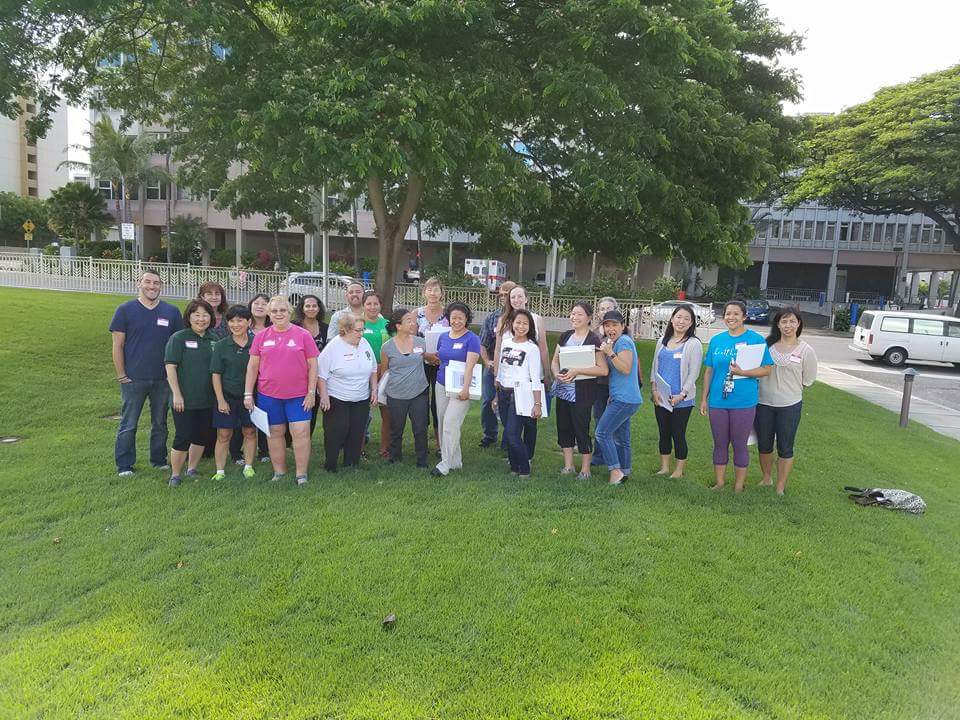Safe Travel for Children with Special Health Care Needs
Posted on Nov 18, 2016 in All IPCS NewsLisa Dau, BSN, RN, Injury Prevention Coordinator – Kapiolani Medical Center/Safe Kids Hawaii/KIPC

All children deserve to be protected in a vehicle using appropriate child restraints (car seats) regardless of their size and development. However, some children with certain medical conditions require special consideration when selecting a car seat. Parents of children with special health care needs who present with short or long-term challenges may find it difficult to safely secure their child in a vehicle using conventional car seats we find on the market.
Think about a child in a spica cast (casted chest to ankles) unable to bend to sit in a car seat; a teen with cerebral palsy unable to sit up on their own; or child with behavioral problems, getting out of their car seat despite proper buckling by the parent. In situations like these, standard car seats usually are not suitable, and adaptive or specialized restraints may be necessary.
The course “Safe Travel for Children: Transporting Children with Special Health Care Needs” was held August 29-30, 2016, at Shriners Hospital for Children for certified car seat technicians. The Automotive Safety Program at Indiana University School of Medicine that is affiliated with Riley Hospital for Children conducted the training with the generous support of Hawaii State Department of Transportation, Keiki Injury Prevention Coalition, Kapiolani Medical Center for Women and Children, Shriners Hospital for Children of Honolulu, and Maui County Child Passenger Safety. Jason Skinner, a certified Child Passenger Safety Technician and instructor for “Safe Travel for All Children” along with a team of local certified Child Passenger Safety Technician Instructors taught the course to 20 technicians.
The course is designed to serve as an enrichment course for child passenger safety technicians who are interested in learning more about special needs transportation. The two-day training, which lasted 2 days, combines classroom lectures and discussion with hands-on exercise. During the training, the participants are introduced to medical conditions that can impact restraint selection and given the opportunity to explore and install specialized restraint systems. Participates were evaluated based on their ability to assess appropriate restraints and to demonstrate proper use and installation. Some of the medical conditions for consideration for adaptive or specialized restraints are achondroplasia, Autism Spectrum Disorder, behavioral challenges, casts, cerebral palsy, Down Syndrome, hydrocephalus, low birth weight or premature infants, spina bifida, or osteogenesis imperfecta.
Specialized or adaptive child passenger safety restraints are designed specifically for children with special health care needs and are not available at retail stores.
They are ordered through a vendor and tend to be more expensive than conventional restraints. Securing these restraints can be a challenge. Special needs car seat loan programs are available through some hospitals for short-term use, evaluation and consultation, and for assistance with ordering specialized car seats. For more information on special needs car seats visit the KIPC website (www.kipchawaii.org) or contact the Kapiolani Medical Center Rehab department at 983-6000 for further information.
Parents and caregivers who would like to get their child’s car seat checked to ensure proper installation and to learn about car seat use can go to www.kipchawaii.org for locations of car seat inspection stations across Hawaii.